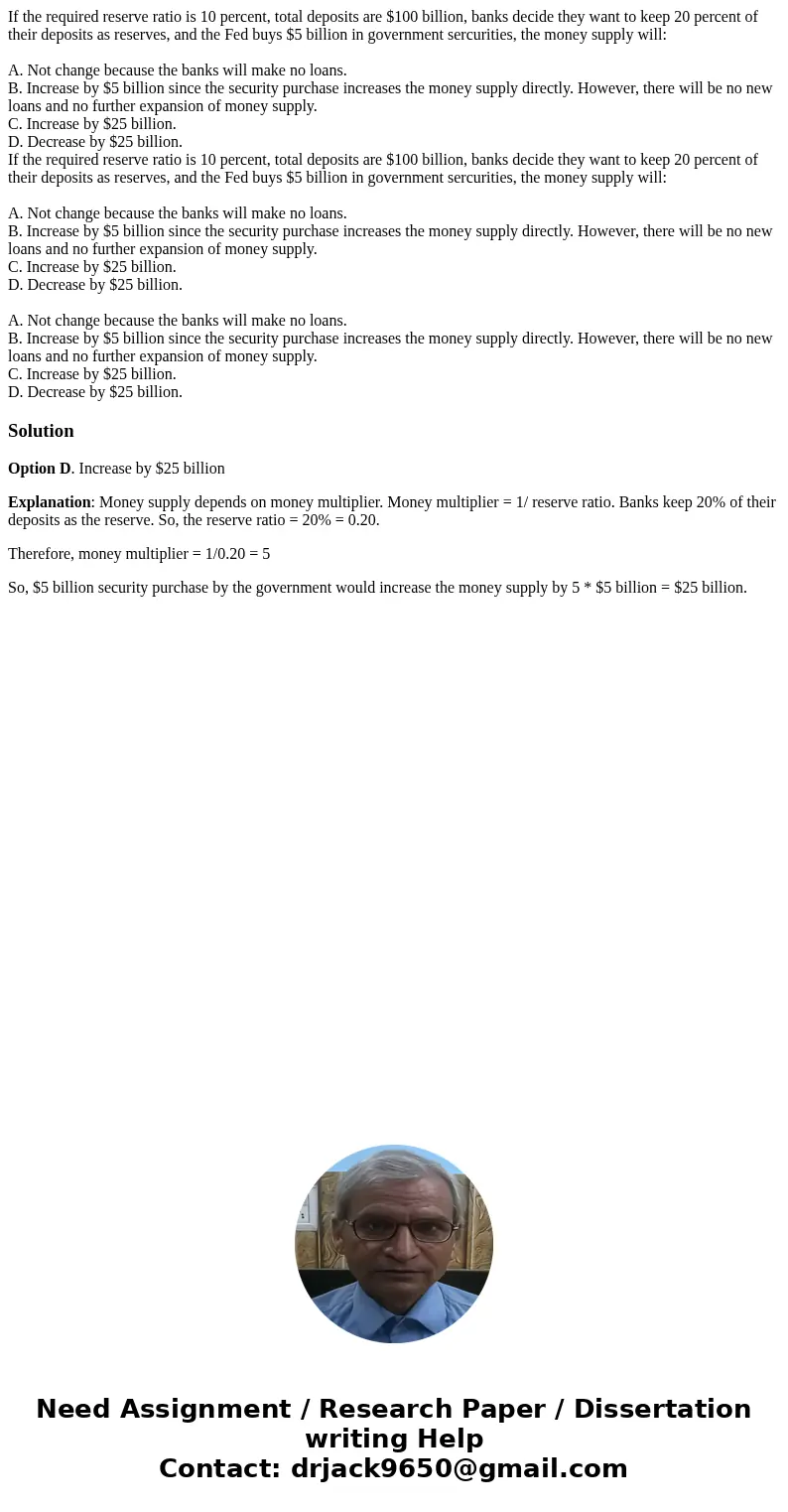If the required reserve ratio is 10 percent total deposits a
If the required reserve ratio is 10 percent, total deposits are $100 billion, banks decide they want to keep 20 percent of their deposits as reserves, and the Fed buys $5 billion in government sercurities, the money supply will:
A. Not change because the banks will make no loans.
B. Increase by $5 billion since the security purchase increases the money supply directly. However, there will be no new loans and no further expansion of money supply.
C. Increase by $25 billion.
D. Decrease by $25 billion.
If the required reserve ratio is 10 percent, total deposits are $100 billion, banks decide they want to keep 20 percent of their deposits as reserves, and the Fed buys $5 billion in government sercurities, the money supply will:
A. Not change because the banks will make no loans.
B. Increase by $5 billion since the security purchase increases the money supply directly. However, there will be no new loans and no further expansion of money supply.
C. Increase by $25 billion.
D. Decrease by $25 billion.
A. Not change because the banks will make no loans.
B. Increase by $5 billion since the security purchase increases the money supply directly. However, there will be no new loans and no further expansion of money supply.
C. Increase by $25 billion.
D. Decrease by $25 billion.
Solution
Option D. Increase by $25 billion
Explanation: Money supply depends on money multiplier. Money multiplier = 1/ reserve ratio. Banks keep 20% of their deposits as the reserve. So, the reserve ratio = 20% = 0.20.
Therefore, money multiplier = 1/0.20 = 5
So, $5 billion security purchase by the government would increase the money supply by 5 * $5 billion = $25 billion.

 Homework Sourse
Homework Sourse